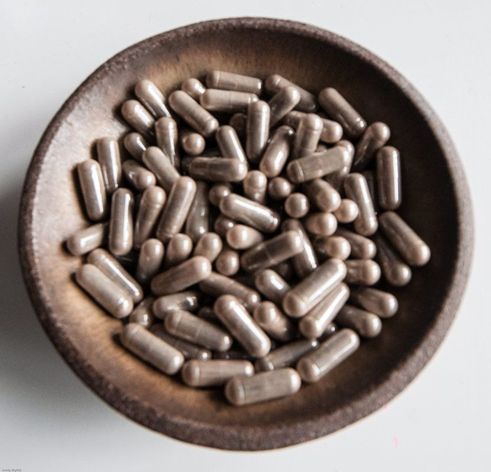|
The best way to know if this service is safe for you, is to hire a professional. A professional is someone that can tell you how they learned, where they process, and how they prevent cross contamination from client to client. Encapsulating in the clients home is NOT always a safer option. Be cautious of people who tell you that it is not legal or not safe for the specialist to encapsulate in their own space. 1. What are the benefits of eating placenta after birth?
There is limited scientific research of the benefits of consuming placenta, however, people who choose to do this post birth, are hoping to balance hormones, possibly enhancing their milk supply, increasing energy and wanting to minimize the symptoms of baby blues. People are trying to heal better and get to bond with their babies! No benefits are promised and anyone who tells you that you will have more milk, you won't get Postpartum Depression and You will lose your baby weight-is selling false claims and you should be cautious of their intentions, training and process. 2. Why is placenta encapsulation becoming so popular? Placentophagy has been around for centuries in some form or another. Encapsulated placenta pills have increased in popularity in the past decade or two because more and more new parents are after the possible benefits, and pill form is much more palatable for most new parents than eating the placenta in it's raw state. Anecdotal evidence is not science based and it can be argued that there are no proven benefits, but many people are willing to try something that can help them. 3. DO we need scientific research? No. We really don't need scientific research to know that placenta pills have helped hundreds of thousands of new parents. It would be nice to have some solid evidence that it works, but nothing is 100%. There is also no real way to get solid proof that placenta consumption will work for everyone. 4. Is research even attainable? Every placenta is different, and every postpartum person is different, including their needs and goals, support and circumstances. There are experiments being done right now on the hormonal content of placenta before heating (steaming and dehydrating vs. just dehydrating). Research has also been done on the iron content of placenta, although in that study, the placebo was dried beef product which doesn't tell us much about the iron levels of someone not consuming an iron rich product. 5. I heard, or read an article that placenta pills can cause lowered milk supply, is this true? No. Across the board, most people consuming placenta pills notice an increase in milk supply and even over supply. Low supply is found in about 1.2% of people surveyed. This rumor was first started by Dr. Jack Newman and most recently be a Lactation Consultant in Northern California. In her blog post, she claims that her clients who consumed their placenta, all had low supply and blames it on the placenta. Let's explore this claim a bit. She is a lactation consultant, working in a clinic and people are going to her with issues, most with low supply. Instead of getting their permission to include them in her anecdotes, she makes claims that their low supply was due to their pills. She dismisses all the positive claims that she references. There is a great article written as a rebuttal to her article taking apart her claims. You can read it here. If you want to encapsulate be prepared to be met with negative anecdotes and opinions from friends, family members and even medical providers. Remember, this is your property and your choice. I recommend that anyone who wants to try it, just tell the medical staff at your birth that you plan to take it home.
0 Comments
|
AuthorShawna is a mom of 3 and has been working with children and their parents since 1999. Just honest information to prepare you and provide you with love and support. Owner and operator of Bay Area Placenta Services since 2012 Archives
August 2022
Categories |
San Francisco, SOUTH SAN FRANCISCO, DALY CITY, PACIFICA, MILLBRAE, BRISBANE, BURLINGAME, REDWOOD CITY, HALF MOON BAY, BELMONT, WOODSIDE, MOUNTAIN VIEW, HILLSBORO, SAN CARLOS, SAN MATEO, MENLO PARK, PALO ALTO, SUNNYVALE, OAKLAND, BERKELEY, WALNUT CREEK, MARIN AND MANY MORE!


 RSS Feed
RSS Feed